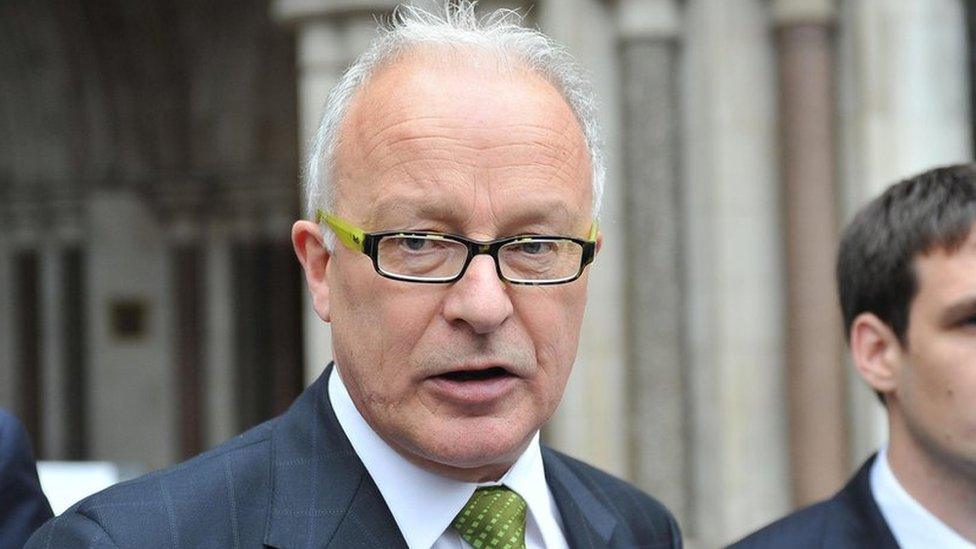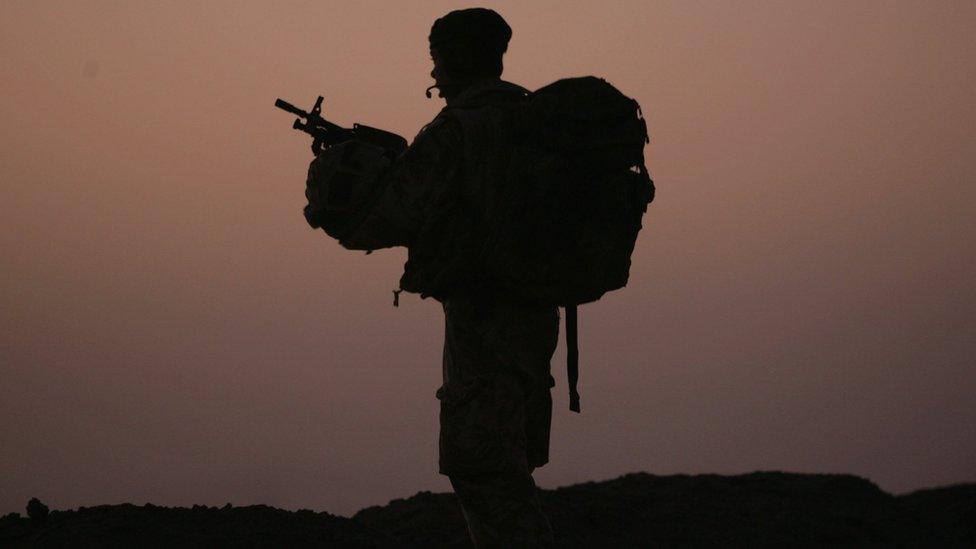IHAT closure: Sgt Brian Wood says Iraq abuse inquiry should have ended sooner
- Published
Sgt Brian Wood says the allegations against him and his regiment were "heartbreaking"
A soldier who was investigated by the Iraq Historic Abuse Team after being falsely accused of war crimes in Iraq says its closure is "long overdue".
Sgt Brian Wood, who served in Iraq in 2004, told the BBC the allegations had been damaging to him and his team.
IHAT's closure was announced after a lawyer in charge of many of the abuse cases was struck off for misconduct.
Veterans minister Mark Lancaster said IHAT was set up for the right reasons but was "completely abused" by lawyers.
'Bitter pill'
Sgt Wood, who served in the 1st Princess of Wales' Royal Regiment told BBC Breakfast the Ministry of Defence said the government had "big lessons to learn".
Talking about the Al-Sweady Inquiry into allegations against service personnel in Iraq, he said: "The allegations were of the highest order - unlawful killing, mutilation and mistreatment of prisoners of war," he said.
"That just did not happen and I just don't know where they got the fuel from.
He said the closure of IHAT was "good news".
"We had holes in our system which were exploited."
Sgt Wood said it would have been better for the team to consider allegations in detail first before releasing them as part of a public inquiry.
He said: "I can speak for me and my soldiers and what they've put us through for that period of time, it was damaging to a degree of careers, marriage split ups and also fuelling the fire of PTSD (post-traumatic stress disorder) and the trauma that we had seen on the battlefield… just to get these allegations thrown at you is a bitter pill to swallow."

Human rights lawyer Phil Shiner was struck off for misconduct
Former Army Captain Rachel Webster, who was arrested and questioned after a dawn raid in January 2014, said the closure of IHAT was "too little too late".
She told ITV News: "I hadn't done anything. I was humiliated and I will never, ever, forget it and neither will any other soldier or veteran that has had this done to [them] as well.
"It has ruined lives. It has destroyed me, literally destroyed me."
Mr Lancaster told BBC Radio 4's Today programme the government had a duty to investigate allegations of abuse, saying: "We can't simply sweep things under the carpet."
Without IHAT, he said, UK troops could have been subjected to inquiries by the International Criminal Court, but he said the decision to close it now was "positive".
An 'unstoppable machine'
IHAT was set up in 2010 to examine allegations against UK servicemen and women made by Iraqi civilians.
But on Friday, the Ministry of Defence said the unit, described by the Commons defence committee as an "unstoppable self-perpetuating machine, deaf to the concerns of the armed forces", would be shut down in the summer and its remaining cases handed to the Royal Naval Police.
It came after Phil Shiner, from the now-defunct law firm Public Interest Lawyers, was struck off for misconduct last week after he was found to have acted dishonestly in bringing murder and torture claims against Iraq war veterans.
As a result, IHAT's caseload would be slashed from 3,000 to 20 cases by the summer, the Ministry of Defence said.
'Serious failings'
More than 3,500 allegations of abuse have been taken up by the team since 2010, despite many cases not having any credible evidence, said the Defence Committee report, external.
It described a "catalogue of serious failings", including service personnel and veterans being contacted unannounced and covert surveillance apparently being used on serving and retired members of the armed forces.
The Ministry of Defence said the department had done its "utmost" to support those under investigation, which included funding all their legal costs, providing pastoral support and tackling issues in the legal process.
It had been unable to shut down IHAT sooner because the investigations had been under scrutiny by the High Court and the International Criminal Court, it added.
The unit has cost the UK taxpayer £34m so far, but costs were predicted to reach nearly £60m had it remained active until 2019.
- Published10 February 2017
